
-
Find the right food for your petTake this quiz to see which food may be the best for your furry friend.Find the right food for your petTake this quiz to see which food may be the best for your furry friend.Featured products
 Hypoallergenic Small & Mini Adult Dog Food
Hypoallergenic Small & Mini Adult Dog FoodHILL'S SCIENCE PLAN Hypoallergenic Small&Mini Adult dog food with Salmon is complete pet food for adult small dogs 1–6 years old. It's formulated for dogs with delicate skin and stomach, with limited high quality novel protein sources & no grain.
Shop Now Perfect Weight Small & Mini Adult Dog Food
Perfect Weight Small & Mini Adult Dog FoodHill's Science Plan Adult Small & Mini Dog Food with Turkey is a complete premium pet food for adult small dogs from 1 year old that are prone to weight gain or slightly overweight. This deliciously smooth mousse is formulated to deliver the appropriate amount of energy to support weight maintenance in adult dogs.
Shop Now Perfect Digestion Small & Mini Adult Dog Food
Perfect Digestion Small & Mini Adult Dog FoodHill's Science Plan Perfect Digestion Small & Mini Adult Dog Food with Turkey is a complete premium pet food for small breed adult dogs aged 1–6 years. This deliciously smooth mousse is precisely balanced to deliver the appropriate amount of energy and to support digestive health in adult, small breed dogs.
Shop NowFeatured products Sterilised Mature Adult Cat Food
Sterilised Mature Adult Cat FoodHill's Science Plan Sterilised Cat Mature Adult Cat Food with Chicken is specially formulated with ActivBiome+ Multi-Benefit Technology. It is a precisely balanced nutrition tailored to meet the needs of mature adult sterilised cats, ages 7+, and to promote graceful ageing.
Shop Now Urinary Health Adult Cat Food with Chicken
Urinary Health Adult Cat Food with ChickenHill's Science Plan Urinary Health Adult Cat Food with Chicken supports the health of the whole urinary system. Suitable for sterilised cats.
Shop Now Oral Care Adult Cat Food
Oral Care Adult Cat FoodHill's Science Plan Oral Care Adult Cat Food with Chicken contains clinically proven kibble technology to reduce plaque & tartar build up.
Shop Now -
Dog
- Dog Tips & Articles
-
Health Category
- Weight
- Food & Environmental Sensitivities
- Urinary
- Digestive
- Joint
- Kidney
-
Life Stage
- Puppy Nutrition
- Adult Nutrition
- Senior Nutrition
Cat- Cat Tips & Articles
-
Health Category
- Weight
- Skin & Food Sensitivities
- Urinary
- Digestive
- Kidney
-
Life Stage
- Kitten Nutrition
- Adult Nutrition
Featured articles Virtual Vet Visits: What You Need to Know
Virtual Vet Visits: What You Need to KnowLearn the ins and outs of a televet appointment before you talk to a vet online.
Read More Tips For Mixing Wet And Dry Pet Food
Tips For Mixing Wet And Dry Pet FoodDiscover tips for mixing wet and dry pet food to ensure balanced nutrition and variety for your pet. For comprehensive feeding advice, visit Hill's Pet UK.
Read More Develop your gut instinct | Hill's Pet
Develop your gut instinct | Hill's PetDigestive disorders can affect any part of the digestive system, from the stomach, small intestine and through to the large intestine.
Read More -


Bananas are a nutritional and convenient snack for humans, but the same may not be true for your pets. If you have a feline family member, for instance, you might be wondering, are bananas good for cats? Or, can your furry friends eat bananas as a treat? Let's take a closer look.
Can Cats Eat Bananas?
While many "people foods", like chocolate, are toxic for cats and other pets, and they should be avoided altogether, bananas aren't toxic to pets. It is one of the fruits that cats can eat safely in small portions. But be sure that your cat doesn't munch on any banana peels; the fruit's skin is a choking hazard and not digestible.
Consuming a large amount of bananas may be problematic and contributes to gastrointestinal problems. Gastrointestinal issues "are most commonly caused by dietary indiscretion", says the UC Davis School of Veterinary Medicine, like when your cat steals a snack from the kitchen table that doesn't end up agreeing with their stomach. Bananas can fall into this category because they don't offer the specific nutrition that cats need. Cats are obligate carnivores, and although they digest well cooked starch, sudden changes in the diet can contribute to gastrointestinal upset.
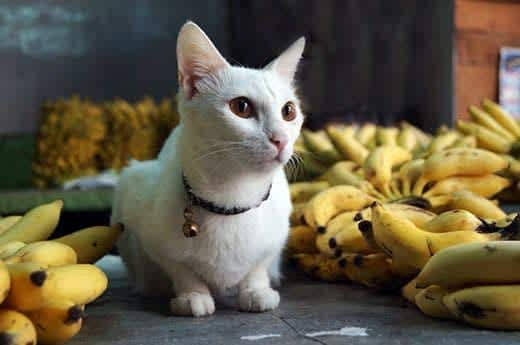
It's important to choose food for your cat that can easily digest and provides the nutrients they need. If you feed banana to your cat, some of the digestive issues to look for include diarrhoea, constipation, vomiting and regurgitation. If you notice any of these or other unusual symptoms, contact your veterinarian right away.
Are bananas safe for kittens? Kittens that are weaned (usually around the age of eight weeks) should be fed "a good-quality kitten food", says International Cat Care. A kitten's digestive system is still developing, and introducing a human food at this early stage can cause inflammation, irritation, sensitivity or other distress.


Tasty Tips
Treat Time: Are Bananas Good for Cats?
Treats should make up less than 10% of your pet's caloric intake, says the Cummings Veterinary Medical Center at Tufts University, and a little banana goes a long way toward that calorie count.
Can cats eat bananas as a nutritious snack? Again, the answer is yes, but in moderation. Because they are carb-dense and calorie-rich, bananas are not at the top of the cat treat list, and your cat may not even want to eat bananas. As Cat Health points out, a cat's "sweet" taste bud receptors are not very strong, so they are not instinctively drawn to sweet foods like bananas. However, if given the chance, many cats may take the opportunity to try something new.
Although bananas are on the safe list, there are certain fruits that you should never feed your cat, including the following:
- Citrus fruits (oranges, tangerines, lemons, grapefruit, limes, etc.)
- Cherries
- Tomatoes
- Grapes
- Raisins
If your furry friend ingests any of these or other toxic foods, contact your vet or an emergency vet clinic right away to determine treatment.
So, can cats eat bananas? As an occasional, fun treat for your kitty, sure, but the better option is to give them healthy cat treats (in moderation) and meals that are specifically formulated with the nutrition they need. Cats require a meat-based meal plan with the right balance of protein and other nutrients, all of which help to keep your feline friend in top form.


Christine O'Brien is a writer, mom, and long-time cat parent whose two Russian Blues rule the house. Her work also appears in Care.com, What to Expect, and Fit Pregnancy, where she writes about pets, pregnancy, and family life. Find and follow her on Instagram and Twitter @brovelliobrien.
Related products
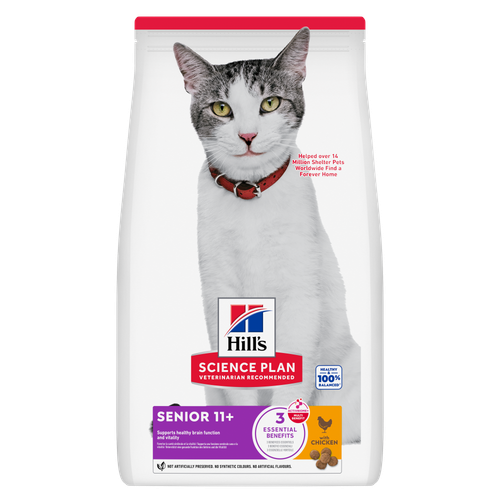
Hill's Science Plan Senior Cat Food with Chicken is a complete pet food, specially formulated with ActivBiome+ Multi-Benefit Technology.
This food supports healthy aging during the golden years. Contains a special ingredient blend to help keep older cats agile, more alert & interactive.

Hill's Science Plan Oral Care Adult Cat Food with Chicken contains clinically proven kibble technology to reduce plaque & tartar build up.

Hill's Science Plan Urinary Health Adult Cat Food with Chicken supports the health of the whole urinary system. Suitable for sterilised cats.

Hill's Science Plan Sterilised Cat Mature Adult Cat Food with Chicken is specially formulated with ActivBiome+ Multi-Benefit Technology. It is a precisely balanced nutrition tailored to meet the needs of mature adult sterilised cats, ages 7+, and to promote graceful ageing.
Related articles

Find the right Hill
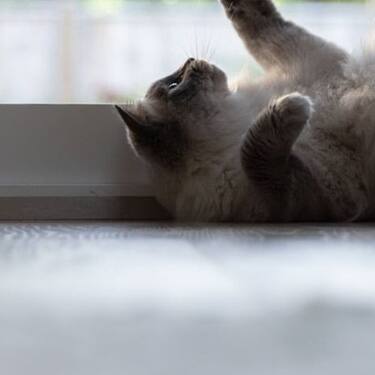
Feeding time can be a wonderful bonding opportunity for you and your cat. Find out how to make the most of it and create a healthy habit with HIll's Pet UK.
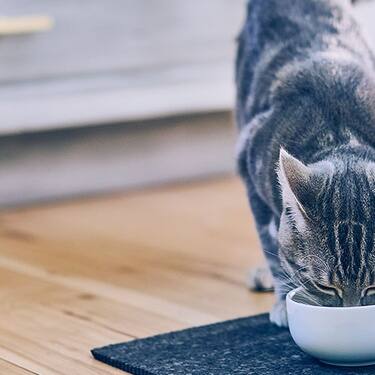
Good nutrition is about the right balance of nutrients. Learn more about health issues when feeding a cat food that has an improper nutritional balance from your friends at Hills Pet Nutrition.
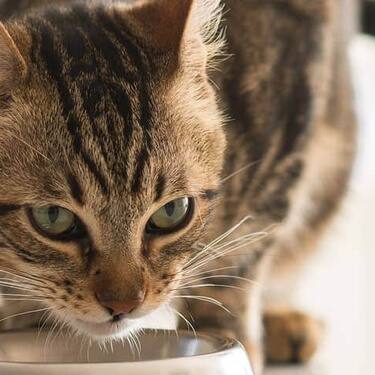
Discover what you can do to spot and support a sensitive cat stomach. See what routines and food you can implement to help your cat be happy and healthy.

Put your cat on a diet without them knowing
Our low calorie formula helps you control your cat's weight. It's packed with high-quality protein for building lean muscles, and made with purposeful ingredients for a flavourful, nutritious meal. Clinically proven antioxidants, Vitamin C+E, help promote a healthy immune system.
Put your cat on a diet without them knowing
Our low calorie formula helps you control your cat's weight. It's packed with high-quality protein for building lean muscles, and made with purposeful ingredients for a flavourful, nutritious meal. Clinically proven antioxidants, Vitamin C+E, help promote a healthy immune system.

